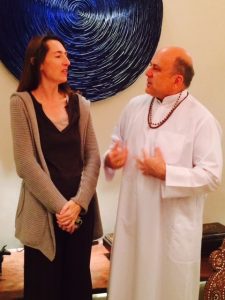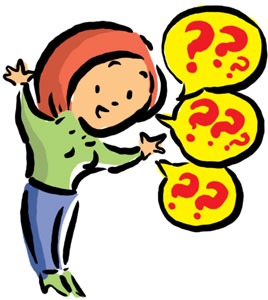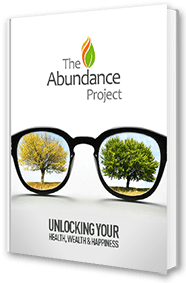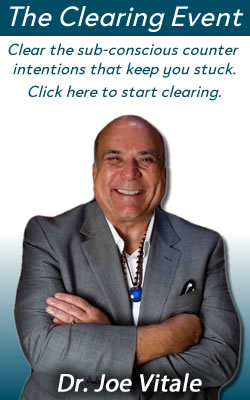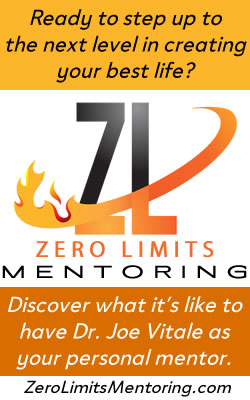Tag: mandy evans
Arguing for Limits
When I was in Kuwait, speaking on positive thinking and happiness, a skeptical man in the audience politely asked, “Where is the evidence that happiness will make a positive difference in my life?”
I smiled.
Even though two other speakers at the same event were recognized psychologists on happiness (one a Harvard graduate), and had already delivered compelling evidence for the benefits of positive thinking and positive psychology, this man wanted something more.
Well, I had an answer for him.
“You can find evidence for whatever you want to believe,” I replied.
“If you want to believe happiness works, then research online and you’ll find evidence to support your belief,” I continued.
“If you want to believe unhappiness is better, then research online and you can find evidence to support that belief,” I added.
And then I delivered the punch line.
“If there is evidence for both happiness and unhappiness as ways of life, which are you going to choose?”
The crowd applauded.
I don’t know if the man got the point or not. The crowd seemed to. But the polite skeptic was coming from a mindset that was arguing for his own limitations.
After all, why ask for proof that happiness is better unless you want to remain unhappy?
And why would anyone want to remain unhappy?
Author Richard Bach famously wrote, “Argue for your limitations and sure enough, they’re yours.”
Many people want to stay unhappy because they believe it serves them.
They believe it keeps them “real.”
They believe if they get happy, they may not do anything, or may be denying “reality.”
What they don’t seem to understand is unhappy people are less productive, practical, realistic, healthy, humorous or social.
I learned this back in the 1980s, when I studied with Barry Neil Kaufman, author of such books as To Love Is to Be Happy With.
Barry explained there are myths around unhappiness.
One of them is the belief that unhappiness will motivate you while happiness will not.
As Barry explained it, the truth is that unhappiness will keep you stuck, while happiness will propel you forward by the simple joy of living.
My understanding of limiting beliefs went even deeper when I started working with Mandy Evans, who I often call the original Miracles Coach.
Mandy says some of our top limiting beliefs are —
1. I should be able to make lots of money, but I can’t.
2. I do not deserve success and happiness.
3. I need to think positive every day to change my limiting beliefs.
4. If someone cheats me or betrays me I have to get even or live with resentment.
5. If I were happy, I wouldn’t do anything.
6. Feeling bad motivates me to change things.
7. If I do not give people what they want, I will end up all alone.
8. I should have worked this out by now.
9. I cannot earn a living doing something I like.
10. Better stop wanting; if you get your hopes up, you’ll just get hurt.
Mandy says for each belief that seems true, ask yourself three questions:
1. Why do I believe that?
2. What might happen if I didn’t believe that?
3. Is that true?
To better grasp all of this, read Mandy’s books, Emotional Options and Travelling Free, available from Amazon, bookstores, or http://mandyevans.com/the-breakout-store
As I’ve often said, we live in a belief driven universe; change your beliefs and you get a different universe.
You are welcome to argue for your limitations, of course, or to delete them and believe something better.
Your choice.
Ao Akua,
joe
PS — The best way to pinpoint and clear limiting beliefs is with a Miracles Coach. Just click right here.
Belief Clearing Secret
Whenever I’m asked what methods I personally use to clear myself of limiting beliefs, I always say three things —
1. Ho’oponopono. This simple prayer, described in the books At Zero and Zero Limits, is what I do daily (even right now, as I’m writing this).
2. Tapping. Whether you call it EFT or TFT or something else, I use the “tapping” method almost daily, for anything that feels “off” in my life.
3. Questioning. I question beliefs much like Sherlock Holmes investigated a crime or Socrates guided his students into clarity.
I’ve touched on this last method in various programs and books, but never really explained it here, on this blog. Today’s the day to do so.
Here goes:
I first learned the power of questions from Barry Neil Kaufman, author of To Love Is To Be Happy With.
“Bears,” as he likes to be called, teaches that you can explore any limits in your life with the right questions and the right attitude. I studied with Bears in 1985 and still reflect back on what I learned from him.
Later, I gained deeper insight into this questioning method from Mandy Evans, who wrote Traveling Free and Emotional Options.
I’ve often called Mandy the original Miracles Coach. She’s helped me off and on for almost thirty years. I owe much of my clarity to her, which led to much of my success.
At one point, decades ago, I was so fascinated with the power of questions that I made business cards calling myself a Socratic Dialogue Consultant.
I thought I might help people by coaching them through the right questions and the right attitude. Life redirected me into writing books and coaching people through words.
But those business cards foreshadowed what I later became: a coach through my work.
So what are the right questions and the right attitude to clear beliefs?
My approach to getting clear through questions goes like this:
First, an attitude of unconditional love is essential.
Any sense of judgment will shut down your willingness to explore. You really need the attitude of detachment, curiosity, and pure accepting love behind every question.
Second, I explore beliefs with the curiosity of a benevolent angel.
When I sense or hear a limiting belief, I want to get curious about it.
Remember, beliefs are not facts. Beliefs can be explored.
They may feel like facts, but beliefs are mental judgments we made up at some point for a variety of reasons. They can be explored and released.
“There isn’t enough money for me” or “I’ll never find the perfect love” or “Sex is bad” are all beliefs.
None are real.
None can be proven by science.
None are universally agreed as true.
Those beliefs can be examined.
Many people can’t find their operating beliefs because they are living them as truths.
To explore a belief, you need to know the belief.
That’s why having an objective person help you can be priceless.
But one way to locate a belief is to ask yourself what a situation means.
In other words, I often say, “The meaning you give an event is the belief that attracted it.”
Think about that —
“The meaning you give an event is the belief that attracted it.”
When you feel stuck or have a problem, how do you describe it?
“I’ve always been this way.”
“This always happens to me.”
Your explanation of the event is most likely the belief that helped create it.
If you really feel you can’t locate the core belief, then just guess at it.
If you knew the belief behind the troubling circumstance, what might it be?
Take a guess.
Accept whatever comes as your starting point.
Now that you have the belief, or at least a belief to begin this process, you are ready to clear it.
But how?
My first question of any belief might be, “Do I believe it?”
After all, upon questioning, I might see that I really don’t believe it.
If I don’t, we can stop there.
But if I feel I do believe it, then the next question might be, “Why do I believe it?”
That question is searching for the evidence of the belief. That of course can be anything, from what I heard to what I saw.
I then want to go deeper and ask, “Do I believe the evidence?”
Again, I may answer no, I don’t, and I’m done.
But if I do believe it, I want to ask, “Why do I believe it?”
Again, we are digging deeper, looking for more reasons or stories for the belief.
At some point I might ask, “What would happen if I didn’t believe it?”
The result of all this questioning is freedom.
I’m the first to admit that doing this “Socratic Clearing” on your own is tough.
You can do it, but you’re stuck in the world of your own beliefs, questioning your own beliefs.
It’s like being in a hypnotic trance and trying to talk yourself out of your own trance.
It’s possible, but not easy.
Results will be faster if you actually work with a coach trained to help you get clear of your beliefs.
Of course, I created Miracles Coaching almost a decade ago to help you do just that.
You can learn more at Miracles Coaching.
Ao Akua
Joe
PS – My approach to questioning beliefs is different from what Barry Neil Kaufman, Mandy Evans, and others in their field practice. If you want to know more, please look for their books. If you want to go really deep, learn from the man credited with coming up with the process both Bears and Mandy use today: Bruce Di Marsico. There’s a three volume set of books based on his work that you might enjoy at http://www.dialoguesinselfdiscovery.com/?p=stores&cat_id=1&product_id=10 There is also a warm book about Bruce Di Marsico called The Guru Next Door. See http://thegurunextdoor.com/ Of course, there are many other belief clearing methods around. One of my favorites is from Morty Lefkoe. See http://www.mortylefkoe.com/ And, for the record, the “person” who got me interested in beliefs at all, many decades ago, was Jane Roberts’ Seth. Jerry and Ether Hicks, of Abraham fame, took up the ball that Seth started, but (for me and many others) it all goes back to Seth.
PPS – This free new e-book can help you, too: http://www.theabundanceproject.com/book.php?linkid=428600

